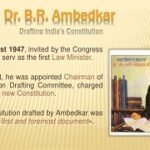Supreme Court says Article 32 important, integral to Constitution: Basics Explained

The Supreme Court in a reportable judgment, Skill Loto Solutions Pvt Ltd vs Union of India, on December 3 has observed that Article 32 of the Constitution of India is an important and integral part of its basic structure
LEARNING FROM HOME/ WITHOUT CLASSES/ BASICS
In civil or criminal matters, the first remedy available to an aggrieved person is that of trial courts, followed by an appeal in the High Court and then the Supreme Court.
When it comes to violation of fundamental rights, an individual can approach the High Court under Article 226 or the Supreme Court directly under Article 32. Article 226, however, is not a fundamental right like Article 32
Article 32 is included in Part III of the Constitution with other fundamental rights including to Equality, Freedom of Speech and Expression, Life and Personal Liberty, and Freedom of Religion. Only if any of these fundamental rights is violated can a person can approach the Supreme Court directly under Article 32.The right under Article 32 is available to anyone whose rights are being violated, not just citizens for instance, while the right to freedom of speech in Article 19(1)(a) is provided to citizens, the right to life and personal liberty is guaranteed to all persons in India. The main purpose of Writ Jurisdiction under Article 32 is the enforcement of Fundamental Rights. The court also clarified that Article 32 was part of the Basic Structure of the Constitution in multiple cases, which means it cannot be removed or altered by regular constitutional amendments.
ART 32 : It states that the Supreme Court “shall have power to issue directions or orders or writs, including writs in the nature of habeas corpus, mandamus, prohibition, quo warranto and certiorari, whichever may be appropriate, for the enforcement of any of the rights conferred by this Part”.
Habeas corpus (related to personal liberty in cases of illegal detentions and wrongful arrests)
The main purpose of this writ is to seek relief from the unlawful detention of an individual. It is for the protection of the individual from being harmed by the administrative system and it is for safeguarding the freedom of the individual against arbitrary state action which violates fundamental rights under articles 19, 21 & 22 of the Constitution. This writ has been extended to non-state authorities as well.
Mandamus — directing public officials, governments, courts to perform a statutory duty
This writ is issued for the correct performance of mandatory and purely ministerial duties and is issued by a superior court to a lower court or government officer. Its main purpose is to ensure that the powers or duties are not misused by the administration or the executive and are fulfilled duly. Also, it safeguards the public from the misuse of authority by the administrative bodies.
Quo warranto — to show by what warrant is a person holding public office. Writ of quo warranto cannot lie against an office of a private nature. This writ is invoked in cases of public offices and it is issued to restrain persons from acting in public office to which he is not entitled to.
Prohibition — directing judicial or quasi-judicial authorities to stop proceedings which it has no jurisdiction for
It is a writ directing a lower court to stop doing something which the law prohibits it from doing. Its main purpose is to prevent an inferior court from exceeding its jurisdiction or from acting contrary to the rules of Natural Justice. Prohibition is a writ of preventive nature.
Certiorari — re-examination of an order given by judicial, quasi-judicial or administrative authorities.
It is issued when there is a wrongful exercise of the jurisdiction and the decision of the case is based on it. The writ can be moved to higher courts like the High Court or the Supreme Court by the affected parties. it can only be issued against judicial or quasi-judicial orders.
The right guaranteed by this Article “shall not be suspended except as otherwise provided for by this Constitution”.
- Under Article 352 of the Constitution when an emergency is proclaimed, the guaranteed Fundamental Rights of the citizens remains suspended. Also, Fundamental Rights guaranteed under Article 19 is restricted by the Parliament under Article 358 during the pendency of an emergency.
- Article 359 confers the power to the President to suspend Article 32 of the Constitution. The order is to be submitted to the Parliament and the Parliament may disapprove President’s order.







0 Comments